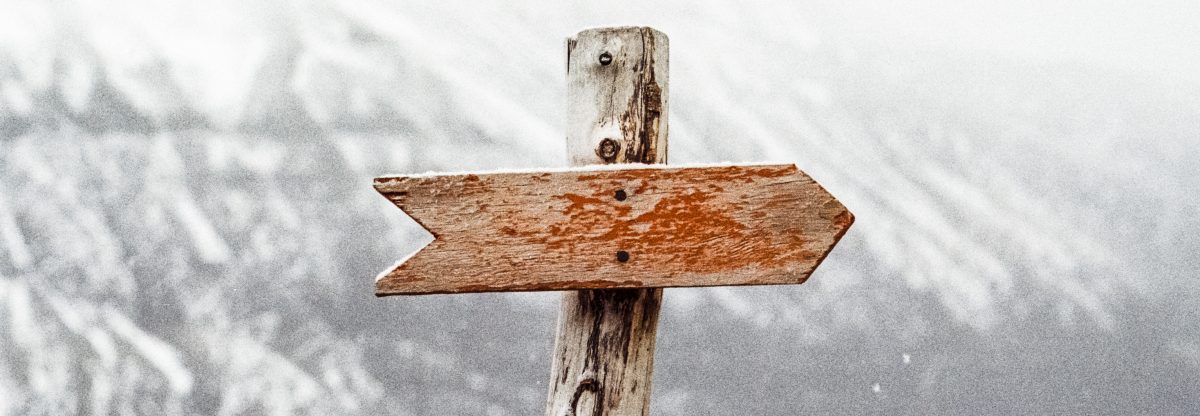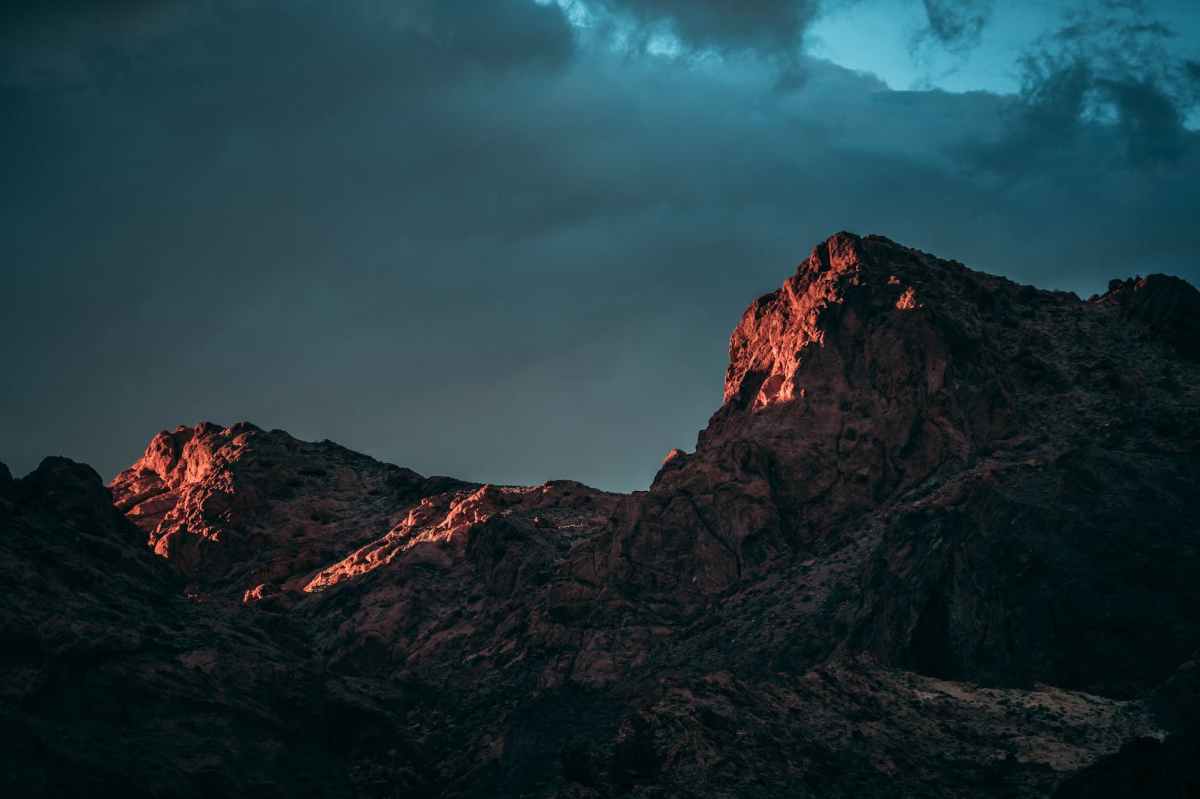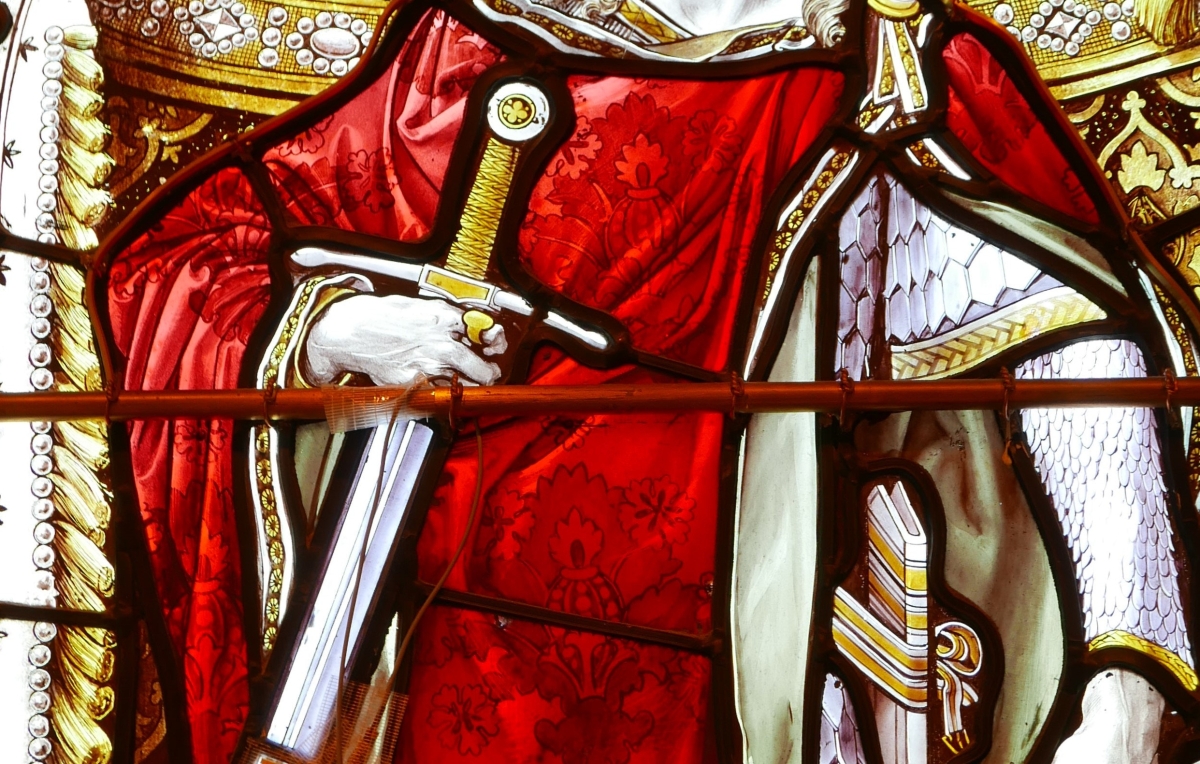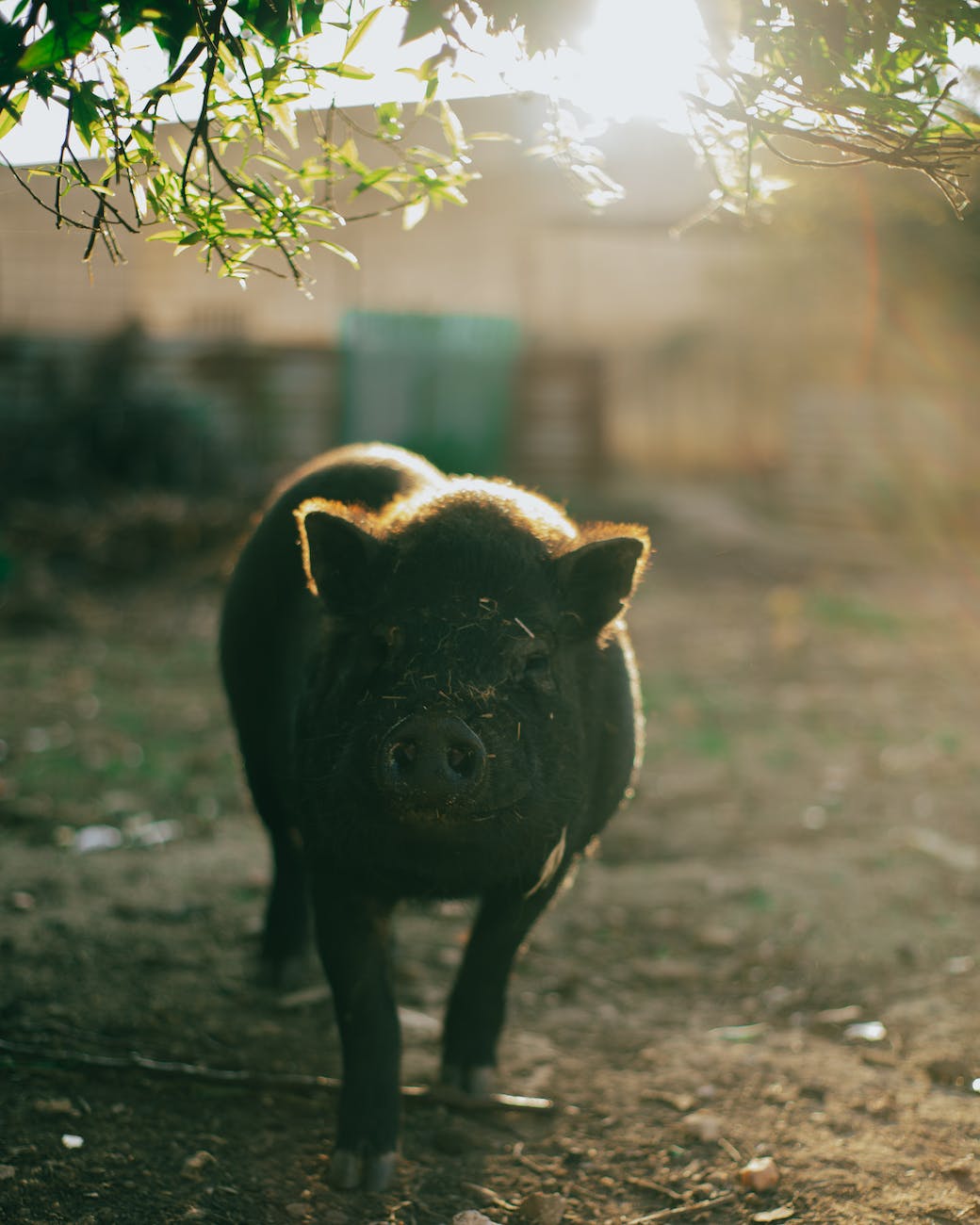I preached this sermon on October 29, 2023 at St. Anne Episcopal Church, West Chester, OH. The lectionary texts cited are Deuteronomy 34:1-12 and Matthew 22:34-46.
When you live in Las Vegas, as I did for many years, the temperatures in the summertime, reaching 115 degrees or more, can become unbearable after a while. Air conditioning makes it survivable of course, but some days you get sick of that frigid, metallic breeze and you start to long for something cool and gentle and real, a soft wind filtered through trees and birdsong, perhaps, the kind that dances across your brow rather than blasting it with an artificial chill.
And luckily, even in the midst of the Mojave Desert where Las Vegas sits, there is a solution to this dilemma, a place known as Mt. Charleston. Drive north from the city, surrounded by endless jagged rock formations and scrub brush and shaggy Joshua trees, and then turn left, and go down a long two lane road through a desert expanse, and suddenly, the highway begins to climb, up, up, up, and the landscape changes before your eyes, and as the elevation increases, suddenly, miraculously, there are mountainsides covered in green pine trees and wildflowers grow along the ditches, and the thermometer on your car drops 5, 10, 15, 20 degrees in a matter of minutes.
You arrive at one of the many trailheads or parking lots and breathe in the cool, verdant air and it seems absolutely impossible that you were roasting amid the harsh glare of the Las Vegas Strip just 40 minutes ago. Up on Mt. Charleston, the world is suddenly new and fragrant and full of different possibilities and the stifling desert is a distant memory.
There was one time up there, though, when I decided to hike a particular trail that led even higher, up through the alpine forest, to an outcropping called Cathedral Rock. I had read that the views from the top were spectacular in every direction. It was a long, moderately strenuous hike, but it was indeed breathtaking at the summit. In one direction, you could look further into the expanse of green mountainside and imagine that you were in Colorado or northern California.
But what struck me the most was that in the other direction you could see all the way back down the mountainside, back down the road that led there, all the way back to the brown valley and the hot desert and the unsparing sunlight of another climate, another reality.
It was jarring and fascinating, from that vantage point, to comprehend the totality of the landscape, how I had not really “escaped” the desert but had simply been lifted up a bit to see how its edges gave way to something else, how the brown and the green, the fiery sun and the cool breeze, were all part of one another. From Cathedral Rock, one could see in a sweeping glance the coherence of things that felt so different, the interplay of opposites, and the ways that the place from which we came and the place where we now stand are always lapping up against one another, borderless.
Now, I make no claim to have reenacted Moses’ journey up to the top of Pisgah, as we heard described in today’s reading from Deuteronomy, but in thinking about that view from Mt. Charleston, I do find myself wondering about his own mountaintop moment, looking into the Promised Land.
I think we usually hear this story and figure that Moses must have been awfully disappointed, never getting to go to the place he’d been working so hard to arrive in. But I wonder if, befitting one who has somehow seen God face to face, perhaps he was given something even better than arrival, something more profound than a simple journey’s end.
We spend a great deal of energy in our own lives, and in the communities and societies we have constructed, assuming that there will be, one magic day, the point when we arrive. Arrive at stability, arrive at safety, arrive at certainty, arrive at the untroubled future long sought but always just around the next bend. Arrive, so to speak, in our own sort of Promised Land.
And when we do, we tell ourselves, then life will really begin, then it will be the way it is supposed to be, and we can forget about all this hardship and heartache that has accompanied us. We will leave the stifling desert wilderness behind, we can forget it ever existed, and the world will be new and fragrant and full of different possibilities.
But the thing is, we never quite escape what has come before. We make strides, we see the possibility of progress and peace, and then—another war erupts and drags innocent victims back into a maelstrom of violence and ancient enmity. Or another pandemic comes along and disrupts our patterns of life and work and worship. Or we lose someone dear to us, or we just make the same old tiresome mistake yet again, or the bottom drops out of our best laid plans, and the hot despair of the desert threatens to engulf us once more.
And maybe we wonder—what’s the point of all this if we can’t ever seem to get where we’re going? What the use of seeing the Promised Land if it keeps evading our grasp?
But as I imagine Moses standing there with tears in his eyes on the top of Pisgah, weeping for a land he will never quite reach, I also imagine him looking back in the other direction, back down into the long road toward the desert, back into the wilderness from whence they had come, back into the memory of Egypt, of heat and sweat and tears.
And I wonder if, from that high vantage point, Moses realized that there was less distinction than one might assume between where they’d been and where they were going. For, despite all the great expectations of the Promised Land, we can’t forget that the desert was also a place where God spoke to them and fed them and guided them day and night and refused to forsake them, even in their faithlessness and desolation and despair.
And so perhaps the wisdom Moses was given, one final gift in the dying light on the mountain, as he cast his eyes back and forth between the road traveled and the road ahead, was to see that, in the end, the desert and the land beyond the Jordan might look different, but they are actually the same landscape. They are just the past and the present lapping up against one another, and while only one might be called the Promised Land, they are both lands that revealed a promise kept—a promise by God to never abandon his people, to never to let them walk alone.
The deserts of our lives and the lands of plenty—they are both places where God abides and where God provides, and the truth is that to cross the proverbial river; to escape; to forget what came before–none of this is the ultimate prize or even the point of the journey. The point is to know that God stands with us wherever we are. It is to know that God loves us wherever we are and, as Jesus says, God commands us to love one another wherever we are. It is to discover that when we do this, then the Kingdom of Heaven, which is dependent on no particular landscape, can spring up anywhere—in the desert heat, in a green and fragrant valley, and the spaces in between.
So no, we cannot spend our lives waiting for arrival at some perfect place in order to begin the work of love. Like Moses, like Jesus, we can only love the rock upon which we stand. We can only love here, love now, love the people that God has placed in front of us, love the world we know, despite its seemingly endless propensity to break our hearts and to backslide into the barren wilderness.
And so we must hold onto the view from Pisgah; we must hold onto the greatest commandment to love, in which all of our perceived divisions are revealed to be an illusion, and in which we discover that there is just one land, there is just one body, one story, one home where all deserve to live in peace and safety.
We must begin to see in a way that comprehends the totality of the landscape, realizing that God’s love is borderless—and that wherever we cast our gaze, and wherever we go from here, and wherever we end up, God will be there. Even on the near side of the Jordan. Because where we ultimately arrive someday is less important than the fact that God has already arrived here, today.
If we are able to see this, and if we choose to live as if this is so, then the Promised Land is no elusive dream of a summer breeze in another place; it’s the ground right under our feet.




